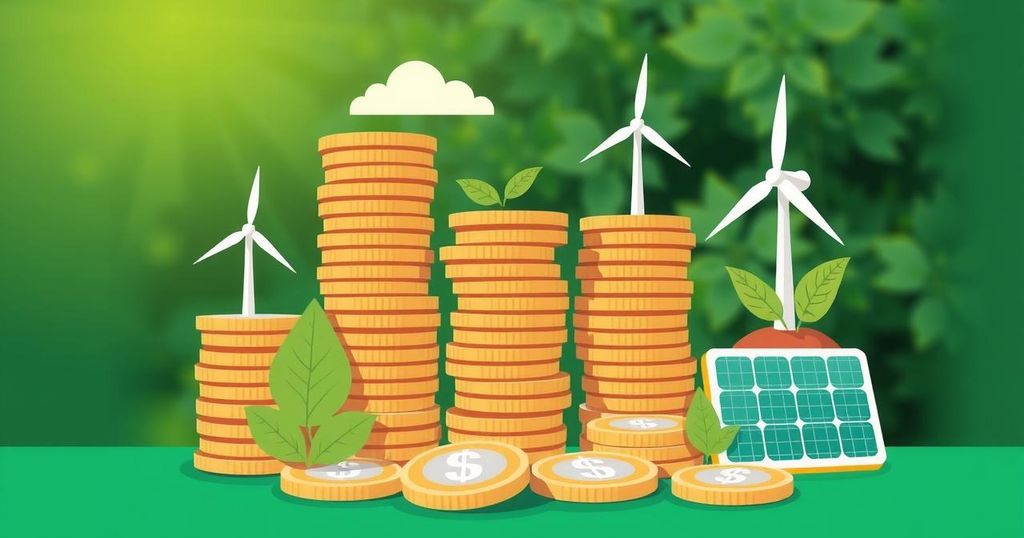COP30 President André Aranha Corrêa do Lago has urged global leaders to expedite the distribution of US$1.3 trillion in climate finance to combat climate change. He emphasized the need for a transformation in financial mobilization, outlining five strategic priorities to ensure equitable financial flows and successful outcomes at the COP30 conference in Belém, Brazil, where Brazil aims to lead in climate diplomacy.
In an open letter, André Aranha Corrêa do Lago, President of COP30, urges global leaders to expedite the disbursement of US$1.3 trillion in climate finance. This request is directed toward governments, financial institutions, multilateral development banks (MDBs), and the private sector, emphasizing the urgency of meeting climate goals ahead of the conference in Belém, Brazil.
Lago highlighted the substantial gap between climate finance commitments and actual disbursement, particularly impacting developing countries that are most vulnerable to climate change effects. To fulfill the objectives of the Paris Agreement, he called for a significant transformation in financial mobilization and allocation strategies.
“The time for small steps is over. We need concrete, large-scale action that ensures financial resources reach those who need them the most, particularly in developing nations facing severe climate impacts,” stated Lago.
To drive this initiative, Lago identified five strategic priorities: (1) aligning global financial flows with the Paris Agreement; (2) tripling global renewable energy capacity by 2030; (3) doubling energy efficiency efforts; (4) transitioning away from fossil fuels; and (5) protecting and restoring forests, particularly in critical ecosystems like the Amazon.
As the host nation for COP30, Brazil aims to take a leadership role in climate diplomacy, advocating for tropical forest protection and sustainable development funding. Marina Silva, Brazil’s Minister of the Environment and Climate Change, reinforced this call to action, emphasizing the necessity of translating climate finance commitments into effective measures.
Silva introduced the concept of a Global Ethical Stocktake (GES), a framework to ensure countries are held accountable for their climate commitments. “The Global Ethical Stocktake will serve as a mechanism to hold nations accountable and ensure they uphold their climate commitments. It’s time to bridge the gap between promises and actual implementation,” she remarked.
Experts have welcomed Lago’s letter but caution that without substantial reforms, the financial system may fall short of supporting necessary climate action. Kjell Kühne from the Leave it in the Ground Initiative urged for climate risks to be integrated into economic models used by institutions like the IMF.
Kühne cited, “The financial system still does not account for the true costs of climate change. Governments and institutions must overhaul the way climate risks are factored into lending, investment, and insurance policies.”
Concerns were also voiced by Toya Manchineri from COIAB regarding the expansion of fossil fuel initiatives. He asserted, “You cannot save the Amazon while still extracting oil and gas. A complete fossil fuel phase-out is necessary to ensure the long-term survival of our ecosystems.”
With the upcoming COP30 in Belém, Brazil faces heightened international scrutiny to produce tangible results. The conference is expected to spotlight climate finance, deforestation, and the role of the Global South in sustainable development. Marcio Astrini, Executive Secretary of the Climate Observatory, characterized COP30 as a pivotal moment in the fight against climate change, urging Brazil to secure ambitious commitments from global leaders.
Astrini stated, “The world is watching. COP30 is a crucial opportunity for Brazil to set an example and push for ambitious climate policies. We need more than discussions − we need binding agreements that will drive real change.”
The call for accelerated climate finance by COP30 President André Aranha Corrêa do Lago highlights the urgent need for transformative action and effective distribution of funds to address climate challenges. With Brazil hosting COP30 and emphasizing its leadership role, the conference presents a critical opportunity for the global community to align financial flows with climate goals and secure meaningful commitments for sustainable development. Without significant reforms and actions, the financial system may remain inadequate to meet the pressing demands of climate action, especially for vulnerable nations.
Original Source: indonesiabusinesspost.com




